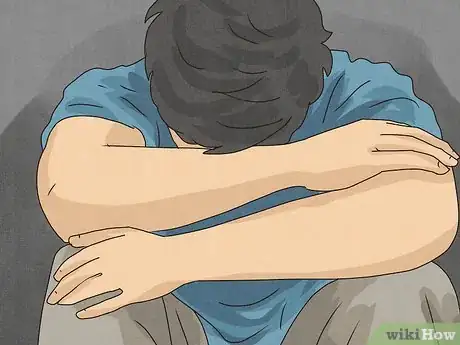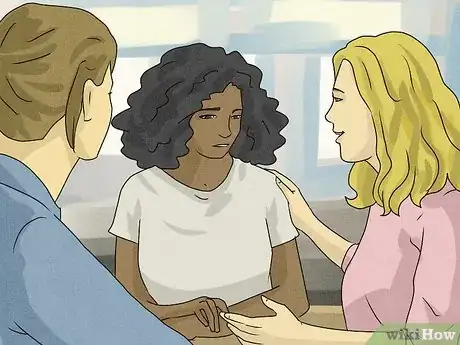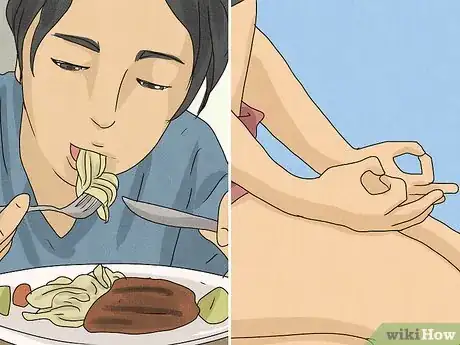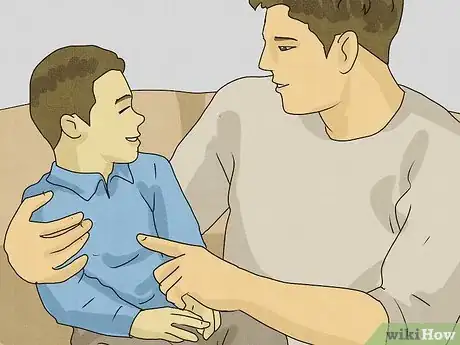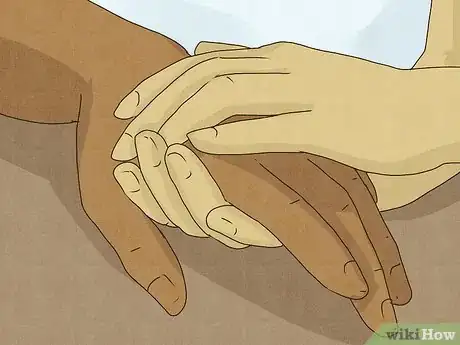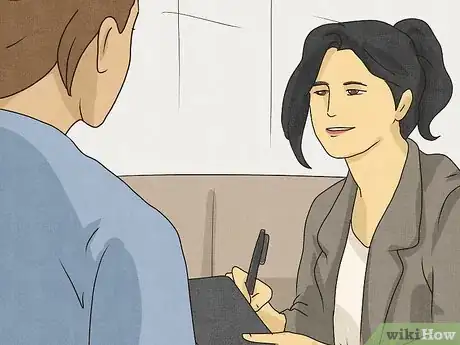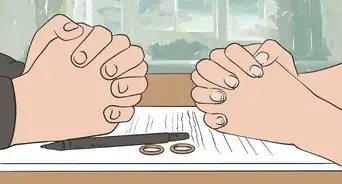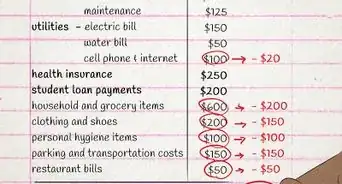This article was co-authored by Sarah Schewitz, PsyD and by wikiHow staff writer, Jessica Gibson. Sarah Schewitz, Psy.D. is a licensed clinical psychologist by the California Board of Psychology with over 10 years of experience. She received her Psy.D. from the Florida Institute of Technology in 2011. She is the founder of Couples Learn, an online psychology practice helping couples and individuals improve and change their patterns in love and relationships.
There are 9 references cited in this article, which can be found at the bottom of the page.
This article has been viewed 12,196 times.
If your marriage has ended, you might feel as if your entire life has been turned upside down. You may have no idea what to do next or how to emotionally cope with a divorce. Although you might feel depressed or powerless right now, you can take control of the life you rebuild. Think of this as a chance for a new beginning. We'll help you focus on fulfilling your needs so you can move on and enjoy this new phase of your life.
Steps
Expert Q&A
-
QuestionHow do you get over a breakup when you still love them?
 Sarah Schewitz, PsyDSarah Schewitz, Psy.D. is a licensed clinical psychologist by the California Board of Psychology with over 10 years of experience. She received her Psy.D. from the Florida Institute of Technology in 2011. She is the founder of Couples Learn, an online psychology practice helping couples and individuals improve and change their patterns in love and relationships.
Sarah Schewitz, PsyDSarah Schewitz, Psy.D. is a licensed clinical psychologist by the California Board of Psychology with over 10 years of experience. She received her Psy.D. from the Florida Institute of Technology in 2011. She is the founder of Couples Learn, an online psychology practice helping couples and individuals improve and change their patterns in love and relationships.
Licensed Psychologist When you go through a breakup, you also go through stages of grief. You need to process the breakup and heal. Don’t cover it up with drugs or alcohol, overeating or avoiding, or just getting into another relationship. For closure, the biggest thing that helps is to understand how you may have contributed to the breakup. There's the period of personal growth that can happen after a breakup that's really like any other time if you do the work if you start to look within. Once you find where you can learn and grow from the experience, and also why it benefited you; not every relationship is meant to last. What did you learn? How does this fit into your journey of evolution as a human being? Being able to answer those two questions after you've gone through the grieving process, you'll usually get some closure.
When you go through a breakup, you also go through stages of grief. You need to process the breakup and heal. Don’t cover it up with drugs or alcohol, overeating or avoiding, or just getting into another relationship. For closure, the biggest thing that helps is to understand how you may have contributed to the breakup. There's the period of personal growth that can happen after a breakup that's really like any other time if you do the work if you start to look within. Once you find where you can learn and grow from the experience, and also why it benefited you; not every relationship is meant to last. What did you learn? How does this fit into your journey of evolution as a human being? Being able to answer those two questions after you've gone through the grieving process, you'll usually get some closure.
References
- ↑ Sarah Schewitz, PsyD. Licensed Clinical Psychologist. Expert Interview. 15 April 2019.
- ↑ https://www.mhanational.org/separation-and-divorce
- ↑ Sarah Schewitz, PsyD. Licensed Clinical Psychologist. Expert Interview. 15 April 2019.
- ↑ https://extension.okstate.edu/fact-sheets/transitioning-through-divorce-grieving-the-lost-marriage.html
- ↑ https://www.psychologytoday.com/us/blog/better-divorce/202009/how-work-through-the-trauma-divorce
- ↑ https://www.mhanational.org/separation-and-divorce
- ↑ https://www.heretohelp.bc.ca/wellness-module/wellness-module-3-social-support
- ↑ https://www.psychologytoday.com/us/blog/the-intelligent-divorce/201311/difficult-divorce-6-ways-get-unstuck
- ↑ https://www.apa.org/topics/divorce-child-custody/healthy
- ↑ https://www.mhanational.org/separation-and-divorce
- ↑ https://www.psychologytoday.com/us/blog/better-divorce/202009/how-work-through-the-trauma-divorce
- ↑ https://extension.umn.edu/divorce-and-other-family-transitions/importance-forgiveness
- ↑ Sarah Schewitz, PsyD. Licensed Clinical Psychologist. Expert Interview. 15 April 2019.
- ↑ https://health.clevelandclinic.org/how-you-can-start-again-after-divorce/
- ↑ https://www.psychologytoday.com/us/blog/better-divorce/202009/how-work-through-the-trauma-divorce


